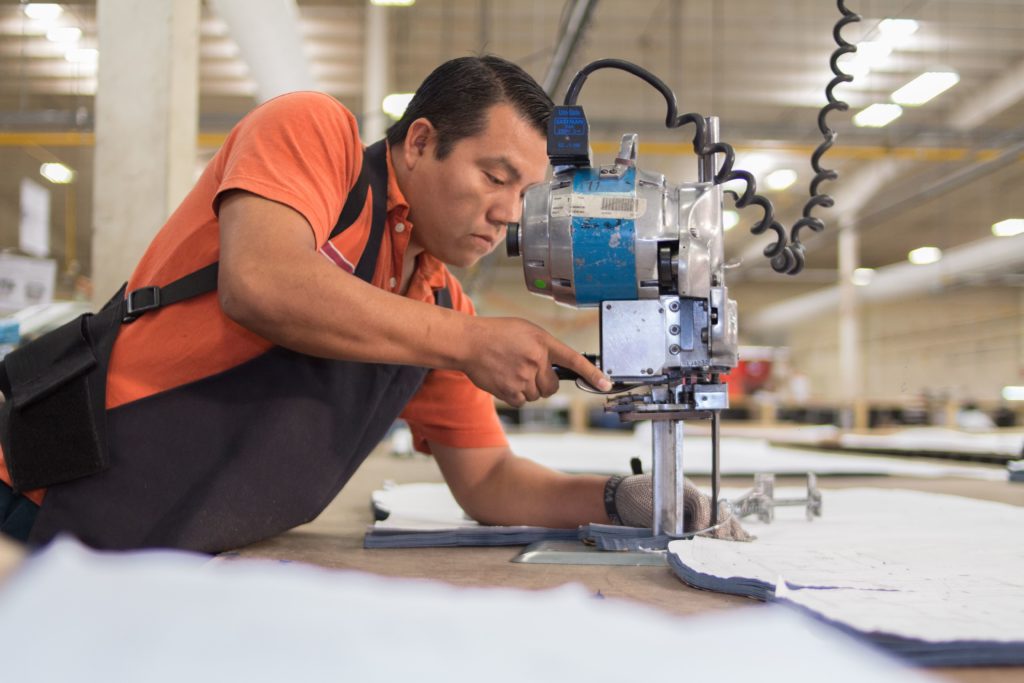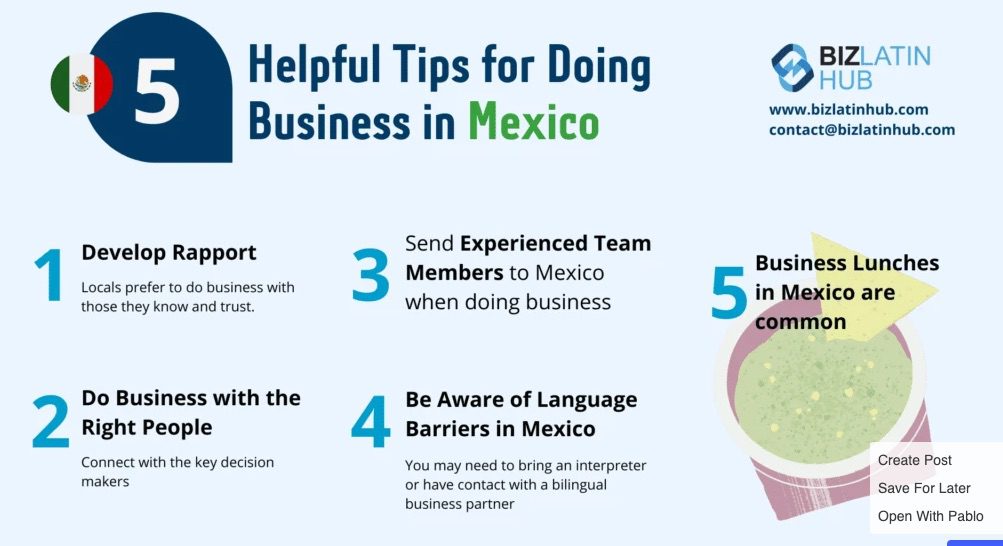Last Updated on February 27, 2024
Embarking on the journey of doing manufacturing in Mexico holds promise amidst the vibrant landscape and potential market growth. However, beneath this enticing prospect lie crucial considerations of the associated risks. In this comprehensive guide, we will delve into the intricacies of manufacturing operations in Mexico. We will uncover the challenges that businesses need to navigate while capitalizing on the opportunities.

Political and Regulatory Landscape: A Balancing Act
Political and regulatory shifts can affect manufacturing in Mexico.
One example of how political and regulatory shifts can affect manufacturing in Mexico is the energy sector. In recent years, Mexico has made a number of changes to its energy policies, including increasing the role of the state in the oil and gas industry. These changes have had a mixed impact on the manufacturing sector. On the one hand, they have led to higher energy costs for some manufacturers. On the other hand, they have also created new opportunities for manufacturers that are able to tap into Mexico's abundant natural resources.
Another example of how political and regulatory shifts can affect manufacturing in Mexico is the labor market. Mexico has a relatively low-wage workforce, which has made it an attractive location for manufacturing. However, in recent years, Mexico has implemented a number of labor reforms that have made it more difficult for businesses to hire and fire workers.
The key for businesses operating in Mexico is to stay informed about political and regulatory developments and to have contingency plans in place to mitigate the impact of sudden changes. By doing so, businesses can better position themselves to succeed in the Mexican market.
Security and Safety Dynamics: Safeguarding Business Interests
Amidst the Mexican manufacturing landscape, security concerns cast shadows. Notably, certain areas experience heightened crime rates. Mexico is a large country with a diverse range of security risks. Some areas are more dangerous than others, and the risks can vary depending on the industry and the specific location.
No matter where they are located, businesses operating in Mexico need to take steps to protect themselves from security risks. Some of the most important things that businesses can do include:
- Strengthen security measures. This includes installing security cameras, fencing, and lighting around their facilities. Businesses should also have a security plan in place that outlines how they will respond to security incidents.
- Liaise with local authorities. Businesses should build relationships with local law enforcement officials so that they can work together to address security concerns.
- Choose secure business locations. When choosing a location for their business, companies should consider the security risks in the area. They should also avoid locating their businesses in areas that are known to be dangerous.
By taking these steps, businesses can help to mitigate the security risks that they face in Mexico and ensure smooth operations.
Supply Chain Vulnerabilities: Navigating Operational Complexity
These advantages have helped Mexico a major manufacturing hub, and the country is now the ninth largest manufacturing exporter in the world. Mexico's strategic location also poses challenges for supply chains. These challenges include:
- Border delays: The US-Mexico border is a major chokepoint for trade, and delays at the border can further lengthen transit times.
- Corruption: Corruption is a problem in Mexico, and this can lead to delays and other problems in supply chains.
- Security risks: Mexico has a high crime rate, and this can pose a security risk to supply chains.
These challenges can make it difficult and expensive to operate a supply chain in Mexico. However, the country's strategic location and other advantages continue to make it an attractive location for manufacturing. Businesses operating in Mexico need to carefully consider supply chain challenges and mitigate them.
Here are some specific things businesses can do to mitigate supply chain challenges in Mexico:
- Use multiple transportation modes to reduce transit times.
- Work with customs brokers to expedite shipments through the border.
- Implement risk management measures to mitigate corruption and security risks.
- Build relationships with local suppliers and partners to gain insights into the local market and logistics landscape.
By taking these steps, businesses can ensure efficient and reliable operations in Mexico.
Labor Relations and Workforce Engagement: The People Equation
An effective manufacturing setup hinges on harmonious labor relations, a facet that becomes even more intricate within Mexico's labor unions. These unions, which play a pivotal role in the Mexican industrial landscape, can shape and disrupt operations. Navigating this landscape necessitates not only open communication and transparent negotiations but also a nuanced understanding of the dynamics inherent to labor unions in Mexico.
By actively fostering positive labor relations that take into account the unique challenges and opportunities posed by these unions, an environment conducive to a truly productive and cooperative workforce can be cultivated.
Cultural Bridge Building: Communication Across Diversity
Navigating cultural nuances while doing manufacturing in Mexico is vital.
Mexico has a rich and complex culture that is different from other countries. Some of the key cultural nuances that businesses need to know when doing manufacturing in Mexico include:
- The importance of personal relationships: Mexicans place a high value on personal relationships, and this is especially true in business. Businesses that want to succeed in Mexico need to take the time to build relationships with their employees, suppliers, and customers.
- The importance of hierarchy: Mexican society is hierarchical, and this is reflected in the workplace. Businesses need to know the different levels of hierarchy and respect those in power.
- The importance of indirect communication: Mexicans are indirect communicators, and they may not say what they mean directly. Businesses need to be patient and understanding when communicating with Mexicans, and they should avoid being too direct or blunt.
- The importance of respect: Respect is an important value in Mexican culture, and businesses need to show respect for their employees, suppliers, and customers. This includes being punctual, dressing appropriately, and making respectful gestures.
- The importance of the family: The family is the most significant unit in Mexican society, and businesses need to know this. Employees may need time off for family events, and businesses should be flexible and understanding.
By knowing these cultural nuances, businesses can avoid mistakes and build strong relationships with their Mexican partners.

Intellectual Property Protection: Safeguarding Innovations
Protecting intellectual property is pivotal in Mexico's manufacturing industry. Navigating IP laws and potential disputes requires vigilance.
Having developed a strong legal framework that effectively protects the rights to intellectual property (IP), the country is committed to fostering innovation and development.
In addition to NAFTA, the United States-Mexico-Canada Agreement (USMCA) provides 21st-century legal protections. Accordingly, the USMCA recognizes the economic benefits of effective IP protection and contains provisions that will enhance Mexico's IP policy framework.
Mexico's position in the 2022 IP Index has improved significantly since several intellectual property commitments outlined in the USMCA have been implemented. Mexico's overall score in the latest edition was 58.98%, ranking in the top half of all economies evaluated by the US Chamber of Commerce. As a result, it exceeds all other Latin American countries included in the report, securing its position as the region's leading nation.
Environmental Regulations and Sustainability: The Green Imperative
Mexico's commitment to sustainability mandates environmental regulations. Non-compliance can tarnish reputations and result in legal ramifications. Manufacturing entities must align with local environmental standards, adopt sustainable practices, and champion corporate responsibility.
The Mexican government is also one of the main recipients of clean development mechanisms in Latin America. In several environmental policy forums, the organization has advocated for the continuation of this development and environmental cooperation mechanism.
Overall, Mexico was one of the first countries in the world to pass a specific law on climate change. The law set an obligatory target of reducing national greenhouse gas emissions by 30% by 2020. The country also has a National Climate Change Strategy, which is intended to guide policymaking over the next 40 years. Furthermore, Mexico has been very active in the preparation of the U.N. Global Goals (Sustainable Development Goals) agenda, reflecting the country’s traditional multilateral approach to foreign policymaking. Mexico has been an active participant in climate-change talks involving international organizations.
Sustainable Governance Indicators: Mexico
Conclusion: Nuanced understanding of risks and rewards
Navigating the realm of doing manufacturing in Mexico involves a nuanced understanding of risks and rewards. While opportunities abound, a strategic approach to risk management sets apart the resilient from the unprepared. By harnessing the potential and anticipating challenges, businesses can script success stories within Mexico's manufacturing canvas.
FAQs on Doing Manufacturing in Mexico
Q1: How can businesses address supply chain disruptions in Mexican manufacturing?
A: Diverse supplier networks, contingency plans, and real-time monitoring solutions form the triad to tackle supply chain disruptions.
Q2: What steps can be taken to ensure labor harmony in Mexican manufacturing?
A: Transparent negotiations, open communication with unions, and adherence to labor laws foster positive labor relations.
Q3: How crucial is sustainability in the Mexican manufacturing landscape?
A: Adhering to environmental regulations and embracing sustainability is paramount for legal compliance and positive public perception.
Q4: What measures can manufacturers adopt to mitigate currency risks?
A: Exploring currency hedging strategies and maintaining flexible financial models can cushion against currency fluctuations.
Q5: How can manufacturers tap into Mexico's diverse consumer landscape?
A: Monitoring consumer trends, staying adaptable, and crafting consumer-centric strategies align businesses with evolving market demands.
About NovaLink
As a manufacturer in Mexico, NovaLink employs a unique approach that transcends the traditional model of shelter production. More than just the location of your manufacturing, we would like to become a partner in your manufacturing in Mexico. You will be able to relocate or initiate manufacturing for your company in Mexico in a low-cost labor environment with very little delay or up-front costs. Find out how we can help you by handling the manufacturing process.
There are NovaLink facilities in the border cities of Brownsville, Texas, Matamoros, Mexico, and Saltillo, Mexico.